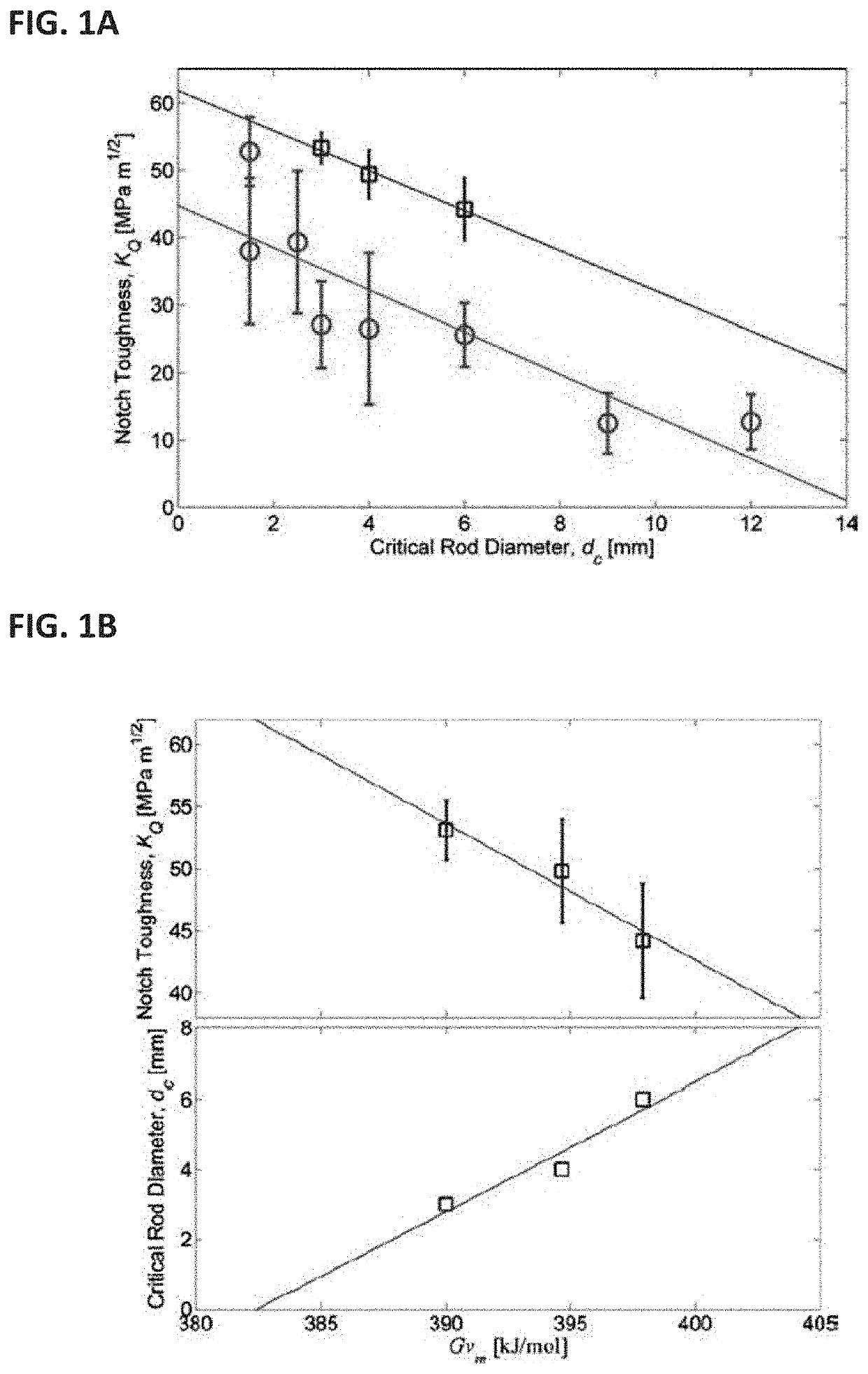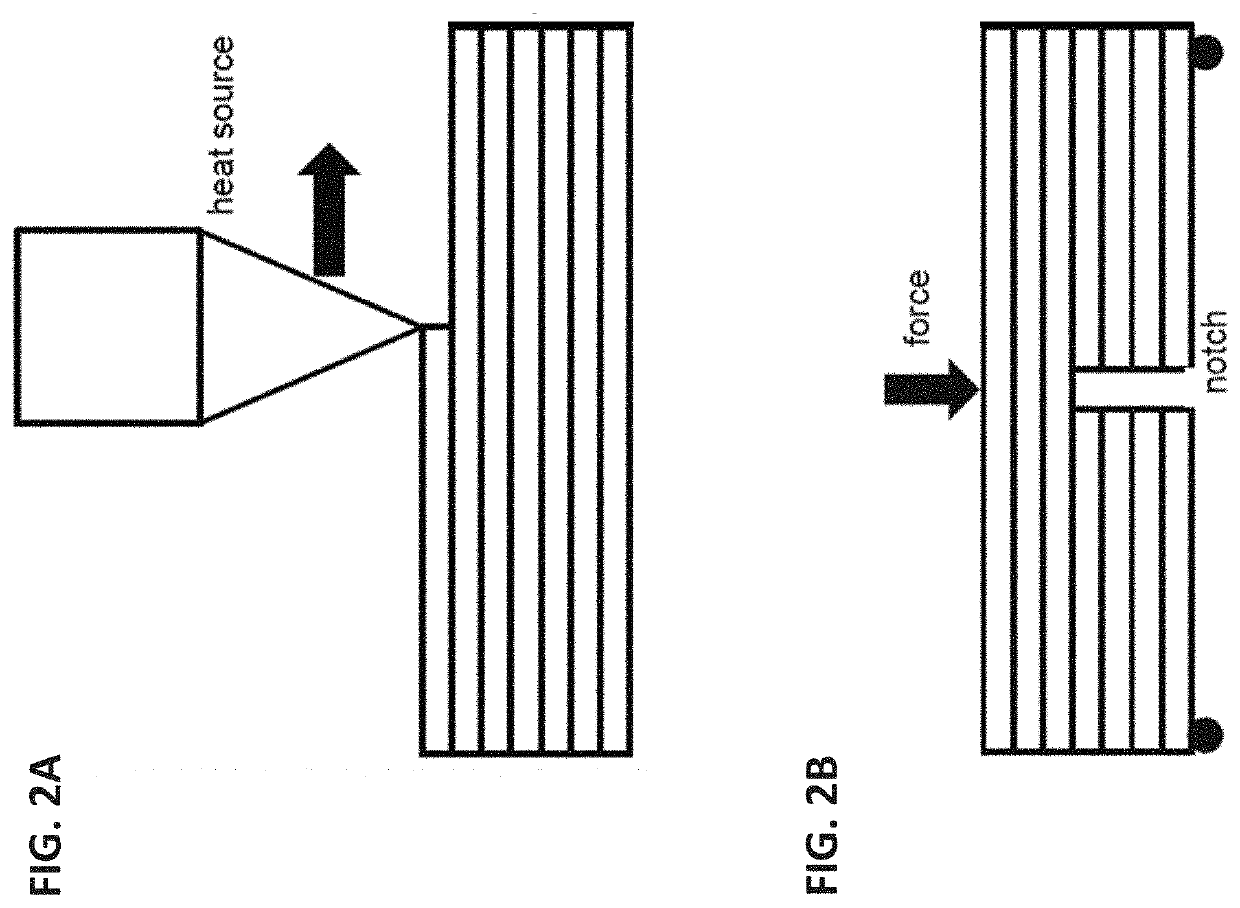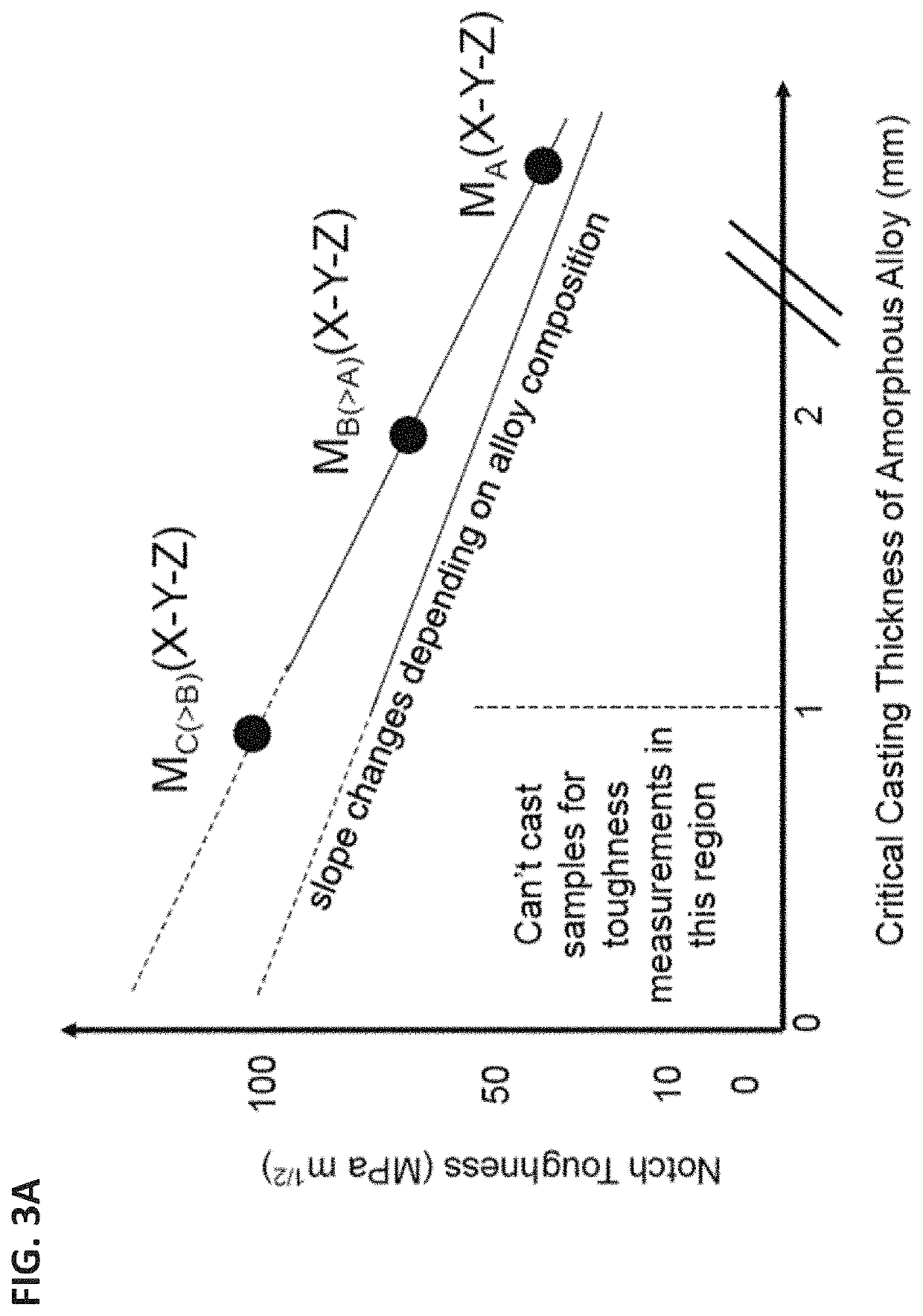Hypoeutectic amorphous metal-based materials for additive manufacturing
a technology of amorphous metal and additive manufacturing, applied in the field of bulk amorphous metal materials and parts, can solve the problems of complex formulation of amorphous metal alloys, and achieve the effect of increasing the heating rate of each layer and prolonging the time between the disposition
- Summary
- Abstract
- Description
- Claims
- Application Information
AI Technical Summary
Benefits of technology
Problems solved by technology
Method used
Image
Examples
example 1
Additive Manufacturing of Tough BMG Parts from ZrCuNiAl and Other Alloy Families
[0102]FIGS. 12 and 13, along with FIG. 3B, illustrate the embodiments and methods of the application in detail, using a well-studied ZrCuNiAl amorphous metal glass family as an example. First, as follows from the table in FIG. 3B, compositions with 65 atomic percent of the main metal Zr, i.e. Zr65(CuNiAl)35, are, in general, good glass formers of the family, all with critical rod diameters greater than 1 mm, and even reaching as high as 10 mm or more for the eutectic compositions. In contrast, hypoeutectic Zr70(CuNiAl)30 alloys (e.g. Zr70Ni16Cu6Al8 in FIG. 3B) demonstrate poorer glass forming abilities (dc{tilde over ( )}5 mm), which are expected to degrade further with increasing Zr content in the composition, to an estimated dc of {tilde over ( )}1 mm for Zr75-80(CuNiAl)25-20 (FIG. 12, top plot). However, increasing Zr content will also increase alloy's fragility and toughness (FIG. 12). In turn, incre...
example 2
Improving Toughness of Additively Manufactured Zr-Based BMG Parts
[0107]Bulk amorphous parts have been previously successfully manufactured via 3D printing from the eutectic alloy Zr52.5Ti5Cu17.9Ni14.6Al10 (also known as alloy LM105), which is an excellent glass former. In addition, parts have also been made from the same LM105 alloy via casting, wherein the reported toughness of such cast parts varies from 20-50 MPa m1 / 2. Furthermore, compression tests with the 3D printed parts (shown in FIG. 15) proved that such parts are actually more brittle (have no plasticity) than the equivalent cast parts, despite being printed at a rapid cooling rate, which should have increased the toughness. This is due to the increased oxygen content in the printed alloy and the porosity in the sample. Here, choosing to 3D print bulk amorphous metal parts from alloys of the same Zr-based family, but selected according to the methods of the application to feature increased Zr content, should result in incr...
example 3
Improving Toughness of Additively Manufactured Fe-Based BMG Parts
[0108]Similarly to Example 2 discussed above, bulk amorphous parts have been previously successfully manufactured via 3D printing using selective laser melting from eutectic Zr-based and Fe-based alloys. (See, e.g., Mahbooba, et al., Applied Materials Today, 11 (2018), p1-6; and Bordeenithikasem, et al., Additive Manufacturing, 21 (2018), p312-317, the disclosures of which are incorporated herein by reference.) These alloys are good glass formers with critical casting thickness of 3 and 4 mm respectively. Furthermore, these examples also show that the alloy with the 74 atomic percent content of Fe has a low notch toughness of 53 MPa m1 / 2 in a cast rod. Although the toughness of the 3D printed parts is not provided, they are expected to be much less tough than their cast equivalents. However, choosing to 3D print bulk amorphous metal parts from alloys of the same Fe-based family, but selected according to the methods of...
PUM
| Property | Measurement | Unit |
|---|---|---|
| hypoeutectic critical casting thickness | aaaaa | aaaaa |
| thickness | aaaaa | aaaaa |
| thickness | aaaaa | aaaaa |
Abstract
Description
Claims
Application Information
 Login to View More
Login to View More - R&D
- Intellectual Property
- Life Sciences
- Materials
- Tech Scout
- Unparalleled Data Quality
- Higher Quality Content
- 60% Fewer Hallucinations
Browse by: Latest US Patents, China's latest patents, Technical Efficacy Thesaurus, Application Domain, Technology Topic, Popular Technical Reports.
© 2025 PatSnap. All rights reserved.Legal|Privacy policy|Modern Slavery Act Transparency Statement|Sitemap|About US| Contact US: help@patsnap.com



